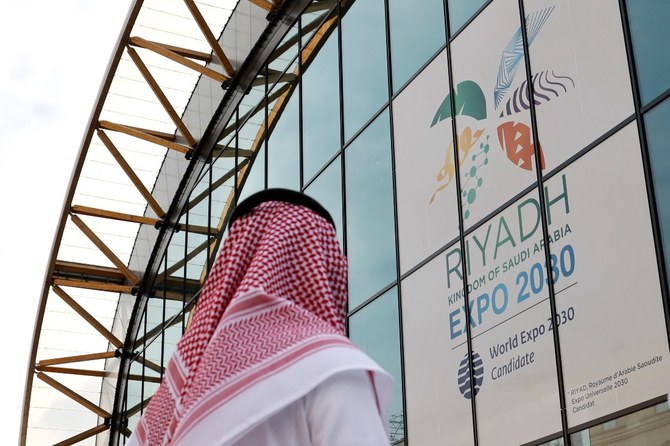PARIS: Media Oasis is a three-day event organized by the Saudi Ministry of Media, highlighting the Kingdom’s economic, development, and culture transformation.
The fifth edition, being held at the Pavillon Vendome in Paris ahead of the Bureau International des Expositions announcement of the Expo 2030 host country, gathers a delegation of Saudi ministers, the mayor of Riyadh, and the leadership of Saudi megaproject companies, to talk about their latest and upcoming projects under Vision 2030, what the Kingdom will look like by 2030, and why Riyadh is the place to be and host the next world expo following Osaka in 2025.
The Media Oasis comprises nine sections from hospitality to culture and sport with Riyadh Expo 2030, Diriyah, NEOM, the Ministry of Sport, Visit Saudi and more present to showcase the “city of tomorrow,” Saudi heritage, and the country’s cultural gems.
The Ministry of Sport is working on 33 new events for 2024 in addition to hosting Asia 2027, Trojena winter games, with sustainability factored into the Kingdom’s transformation efforts, sustainable sports events, and activities.
Jerry Inzerillo, CEO of the Diriyah Group, told Arab News how Diriyah was at the heart of the Kingdom’s transformation journey for 2030 and beyond.
Diriyah is a model for urban development and cultural renaissance, and an ambitious project aiming to become one of the leading culture centers, tourism hubs, and entertainment destinations on a global scale.
“We’re very blessed at this point in time to have two great visionary leaders of one time, King Salman, and the dynamic Crown Prince Mohammed bin Salman. Their vision of the Kingdom to give happiness and well-being to all its people is 2030.
“The reason why this Expo is more important to Saudi than anybody is because we feel that it will allow us to welcome people from all over the world to see the accomplishments of the Kingdom by 2030.
“The crown prince said we will not only show our commitment, but we will also physically be there to show how much this means to us and I think it was a very thoughtful and brilliant strategy,” Inzerillo said.
Moving forward and beyond the announcement, the megaprojects are in progress to achieve the targets of Vision 2030, alongside a continued conversation between Saudi Arabia and the rest of the world to meet the Kingdom’s economic, culture, and hospitality objectives.
With 50 years of experience in the tourism industry, Inzerillo highlighted authenticity and passion as a driving force behind the Diriyah projects, a UNESCO World Heritage Site, and the birthplace of the Kingdom.
“Winning the bid is when the work begins, because we have a giant task to do to get everything completed by 2030. In the case of Diriyah, 140 million square meters must be finished by 2030 and we will be ready to welcome everybody from all over the world,” he added.
In the six years leading up to 2030 the biggest challenge was expected to be manpower.
Inzerillo said: “We’re lucky because the Kingdom of Saudi Arabia has a very young population, highly educated.
“What Singapore did in 60 years, what the Emiratis did just in tourism in 30 years, the crown prince wants to accomplish that in 15 years.
“Diriyah will be very famous by 2030. Now we have to get NEOM going, Red Sea going, the city of Riyadh will be unrecognizable, one of the great G20 cities of the world, as the crown prince continues his global leadership as a G20 head of government,” he added.

















